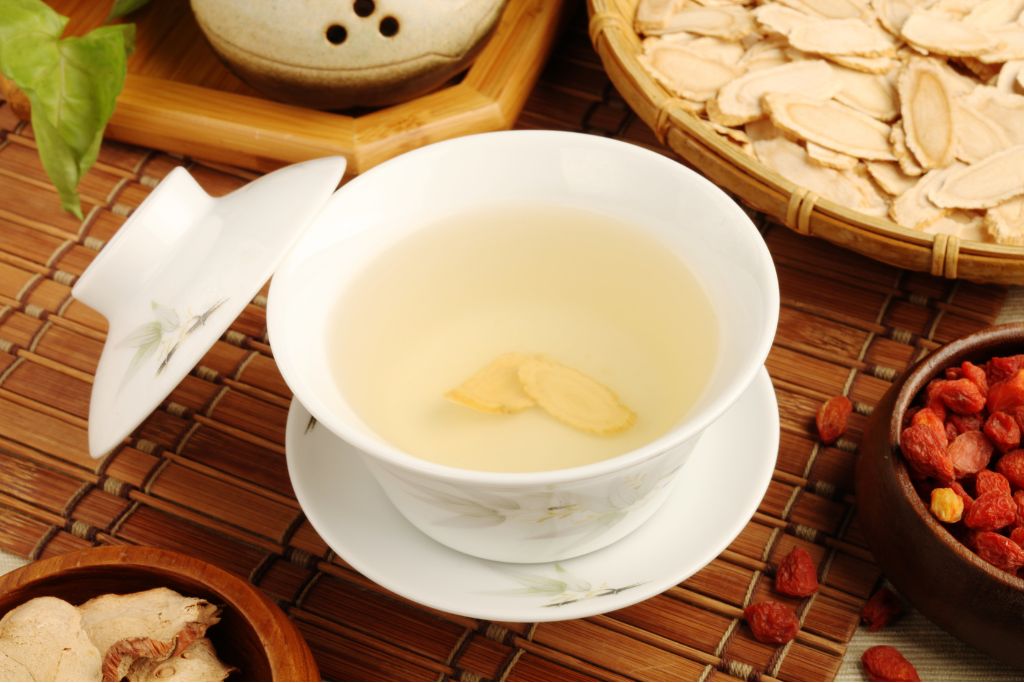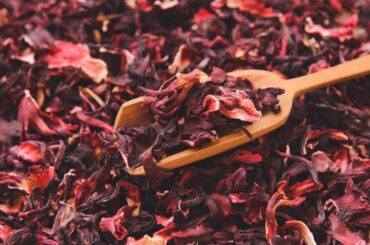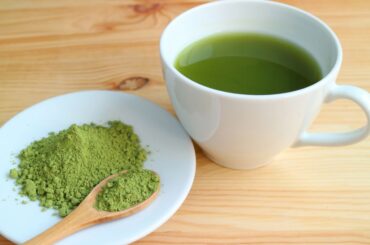Are you intrigued by what ginseng tea does? How long have you known that traditional Chinese medicine uses ginseng tea? You are in the right spot. In this article, we’ll learn about ginseng tea, its special qualities, and who will gain from reading this.
Ginseng tea is known for being adaptogenic, which means they help the body deal with stress and keep it in good overall health. This interesting herb has become famous worldwide because it might benefit your health.
This article is great for anyone wanting to learn more about how ginseng tea can help them. It is especially good for people interested in natural remedies and who like to try new herbal drinks.
What Does Ginseng Tea Do?
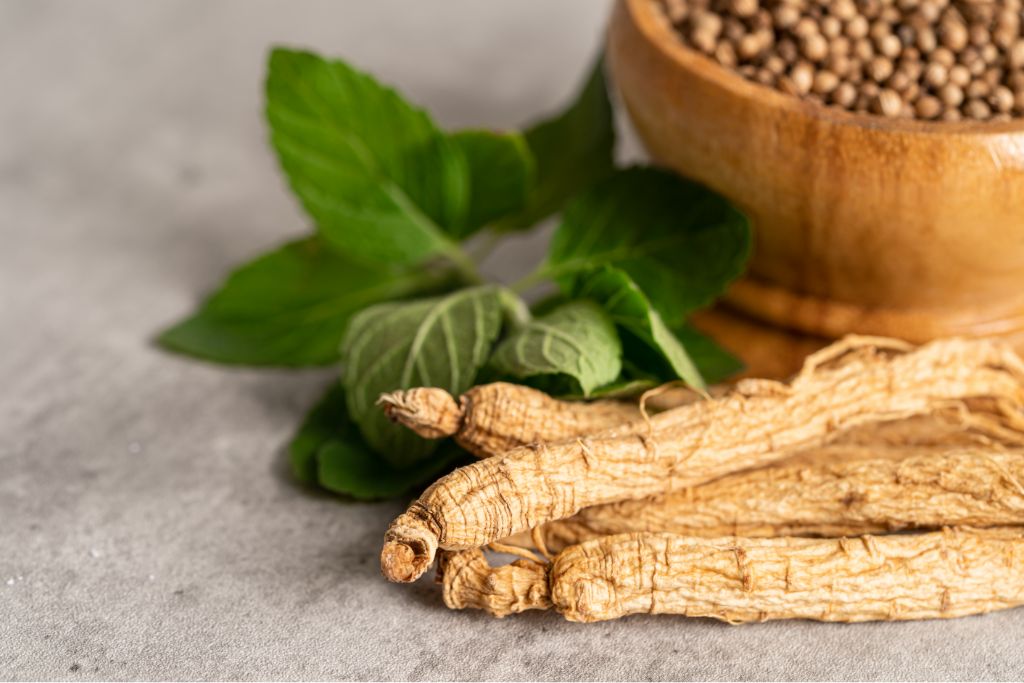
Ginseng tea is made by steeping ginseng root. Traditional medicine has been practiced for centuries since it benefits people’s health. You feel better, have more energy, and can concentrate better when drinking this tea.
This tea is well known for giving people a natural energy boost because it can help the central nervous system. It also helps with memory, concentration, and clarity.
It is also an adaptogen, which helps the body stay balanced and deal with stress. It strengthens your immune system, lowers inflammation, and prevents oxidative damage.
What Does Ginseng Tea Taste Like?
Ginseng tea has a deep, earthy, and sweet taste. Its quality and brewing process influences ginseng’s taste. Some people like the earthy and herbal taste, but others find it bitter or acidic.
Brewing time and water temperature affect ginseng tea’s flavor. Shorter steeping times and lower water temperatures provide milder flavors, whereas longer steeping times and higher water temperatures accentuate earthy and bitter flavors.
10 Ginseng Tea Benefits
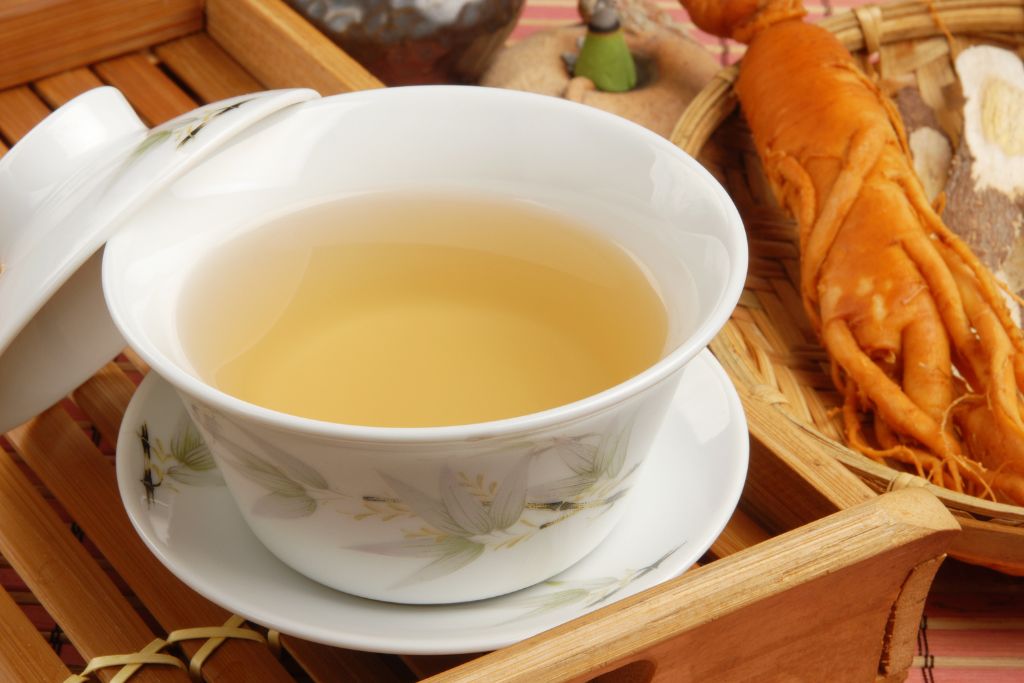
Ginseng tea is known for being good for your health. It has also been used in traditional treatment for hundreds of years. Let’s look at the ten ginseng tea benefits:
Boosts Energy
Ginseng tea is a natural way to get more energy and makes you more alert by waking up your central nervous system. Tea helps the flow of blood and the amount of oxygen that gets to cells, giving you more energy.
If you consume it once or twice daily, it will work best. Steep one teaspoon of dried ginseng root or a tea bag for 5 to 10 minutes in hot water. Honey or lemon could make it taste better.
Improves Cognitive Function
Active substances in ginseng protect nerve cells, which may help keep and improve brain health. Your brain will gain from drinking ginseng tea once or twice a day. You can also include honey or lemon to improve the taste.
Supports Immune System
The body’s immune system functions better due to this herbal tea, making fighting infections and illnesses simpler. There are chemicals in tea that can help the immune system as a whole work better. So, drink ginseng tea once or twice a day.
Reduces Stress
Ginseng tea is an adaptogen that helps the body deal with stress and feel better. It controls the chemicals that make you feel stressed and helps the adrenal glands. It can enhance how you feel if you consume it once or twice each day. If you want, you can add honey or mint to the tea.
Enhances Mood
Ginseng tea’s benefits include improving the mood. It could make you feel less anxious and better in general. It might help you unwind and calm down when feeling the strain. Daily consumption of one or two cups of this tea will help you feel better.
Anti-Inflammatory Effects
The anti-inflammatory characteristics of this tea make it helpful in reducing inflammation and associated pain and other symptoms. It has been shown that the active chemicals in ginseng tea can change inflammatory markers in the body. You might feel less inflammation if you consume this once or twice a day.
Antioxidant Protection
Antioxidants in ginseng tea defend against free radicals and oxidative damage. These antioxidants prevent volatile molecules’ negative effects, which is advantageous for your overall health and well-being. If you drink ginseng tea twice a day, you will reap the health benefits.
Supports Blood Sugar Control
Ginseng tea may improve insulin sensitivity and help regulate blood sugar levels. The active substances in tea have been shown to help the body use glucose better. This tea, if consumed once or twice a day, can aid in maintaining healthy blood sugar levels.
Digestive Health
This tea infused with ginseng helps the digestive system work well and ease stomach pain. It calms and helps the body digest food. It should be drunk one to two times daily to help your gut health. A little honey or a piece of fresh lemon can be added to enhance the flavor.
Supports Heart Health
Ginseng tea may lower cholesterol and blood pressure. Compounds in the tea can help the heart work better and support a healthy circulatory system. Drinking ginseng tea once or twice a day is good for your heart.
4 Ginseng Tea Side Effects
Most people can drink modest amounts of ginseng tea without getting sick. Even if adverse consequences are rare, awareness of them is critical. Here are ginseng tea’s side effects:
Insomnia
If you drink ginseng tea too close to bedtime, you might have trouble going asleep or staying asleep. The tea’s energizing qualities, which can stimulate the central nervous system and make it hard to sleep, cause this side effect.
If you want to avoid getting sleepy at night, drinking ginseng tea early in the day is best.
Elevated Blood Pressure
Some people may experience a temporary rise in blood pressure when they drink ginseng tea. As a stimulant, tea narrows the blood vessels and raises blood pressure. People with hypertension or heart disease should consult their physician before drinking ginseng tea.
Digestive Issues
Ginseng tea can sometimes cause mild stomach problems, like upset stomach, diarrhea, or constipation. Drinking tea in moderation and changing the dose is important to lower the chance of these side effects.
Allergic Reactions
Ginseng tea can sometimes cause allergic responses in some people. Some symptoms are rashes, itchiness, swelling, and trouble breathing. If you have an allergic reaction after drinking ginseng tea, you must see a doctor immediately.
If you know you’re allergic to ginseng or other herbal goods, it’s best not to drink ginseng tea so you don’t get reactions.
Ginseng Tea Nutritional Facts
Ginseng tea is good for your health and has some nutritional value. Here are the estimated nutritional facts for ginseng tea based on normal serving sizes.
Ginseng Tea Nutritional Facts (per 8-ounce serving):
- Calories: 2 to 5 calories
- Carbohydrates: Less than 1 gram
- Protein: Less than 1 gram
- Fat: Negligible amounts
- Saturated Fat: Negligible amounts
- Cholesterol: No cholesterol
- Sodium: Negligible amounts
- Potassium: Around 50 to 100 milligrams
- Sugar: Negligible amounts
- Vitamin C: 1 to 2 milligrams
- Calcium: Negligible amounts
Disclaimer: Please remember that these are only approximations and can change depending on the brand or way of preparation. For exact nutrition information, it’s best to look at the nutrition label on the package or consult a medical expert.
FAQs
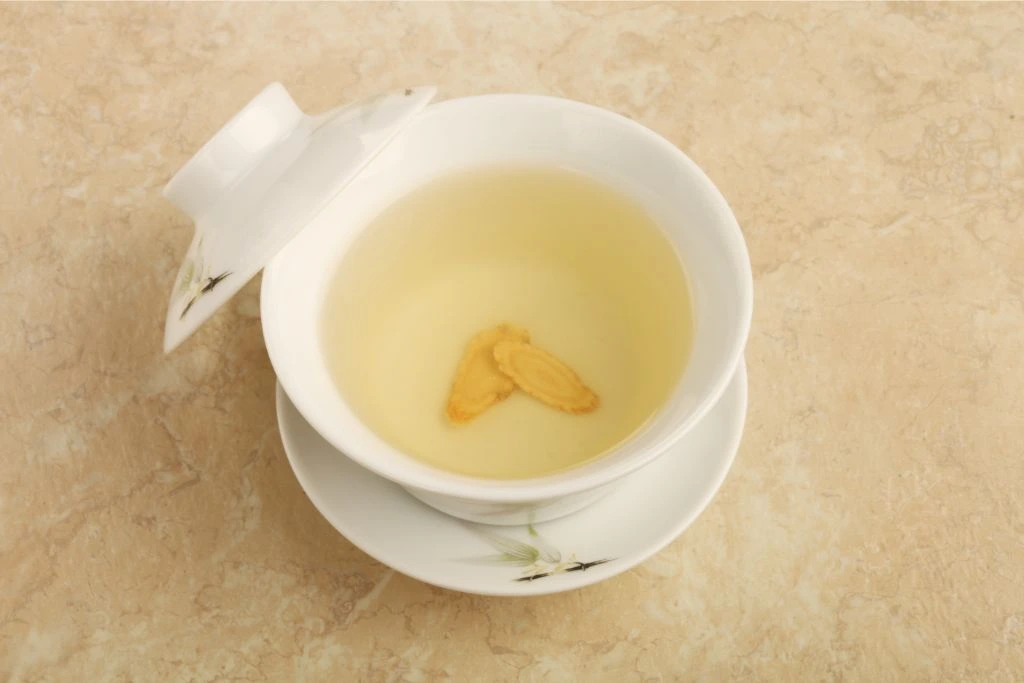
What are the Benefits of Ginseng Tea?
Ginseng tea gives you more energy, helps your brain work better, and supports your defense system.
Can I Drink Ginseng Tea Every Day?
Yes, drinking ginseng tea every day is usually safe, but moderation is key. For personalized help, talk to a healthcare professional.
Should I Drink Ginseng Tea Before Bed?
No, drinking ginseng tea before bed is not a good idea because it can keep you awake and make it hard to fall asleep.
Can You Drink Ginseng Tea on an Empty Stomach?
Yes, you can drink ginseng tea on an empty stomach.
Is Ginseng Good for Kidneys?
Yes, ginseng is usually thought to be good for kidney health, but you should talk to a medical professional for specific advice.
When Should You Not Drink Ginseng?
You should not drink ginseng if you have certain medical conditions, are pregnant or breastfeeding, or are taking specific medications.
How Much Ginseng is Safe Daily?
The safe amount of ginseng you can take daily depends on your age, health, and how much you can handle. For personalized advice, it’s best to talk to a healthcare expert.
What are the Ginseng Tea Side Effects?
Ginseng could cause sleeplessness, high blood pressure, problems with digestion, and allergic responses. Watch how your body reacts, and talk to a doctor or nurse if you have any concerns.

